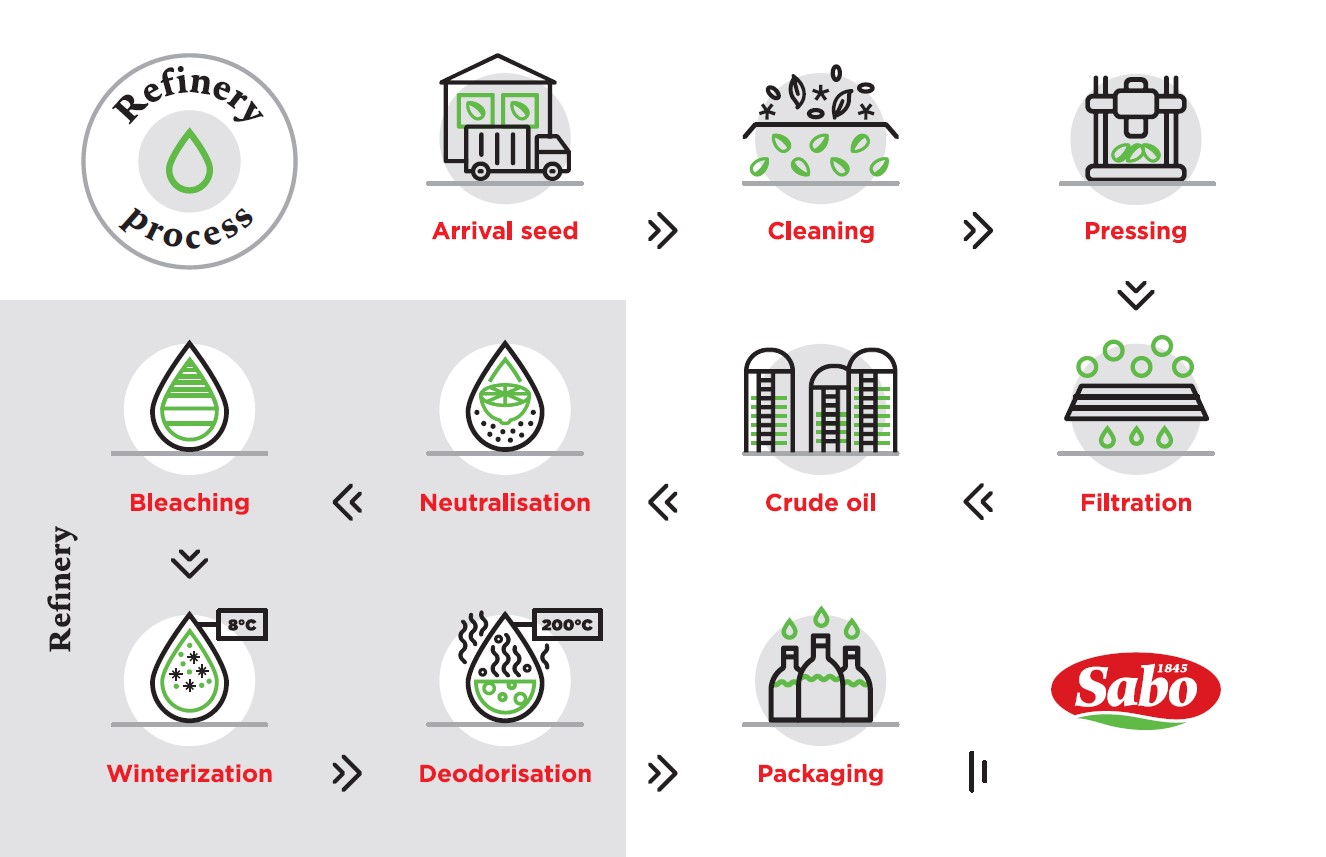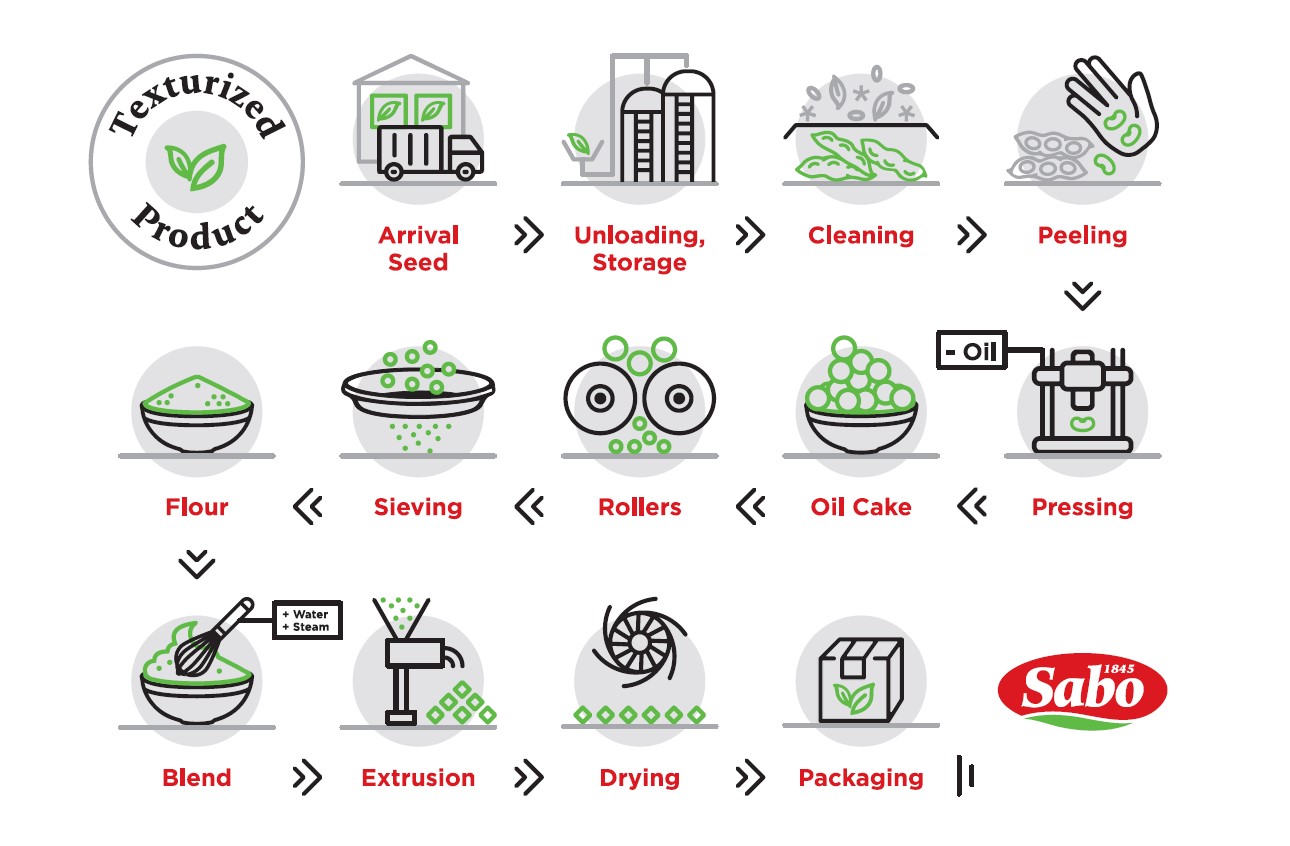Production process
By choosing the best raw materials and using modern technology, vegetables oils and textured vegetable protein products are created at Oleificio Sabo to meet your individual requirements.
Cooking oils: cold pressed or refined
Cold-pressed cooking oils
Cold-pressed cooking oils are obtained exclusively through mechanical processes with no external heat input. The result of cold pressing is virgin oils, the highest quality oils. With cold pressing, the yield is lower than with hot pressing for the production of refined oils. Virgin oils are characterised by their typical taste and colour as well as their high content of valuable nutrients. Apart from pressing and filtration, the oil does not undergo any further processing. As a rule, unrefined oils should not be used for frying because the precious nutrients are lost through heating. In addition, virgin oils are particularly sensitive to heat and start smoking quickly, which can actually produce harmful substances.Refined cooking oils
If you wish to obtain a refined cooking oil, you must increase the temperature in the press to best extract the oil from the seeds. After pressing, the crude oil is released from various substances. Any pigments, odours, or bitter flavours and substances contained within it will be separated out. The refining process comprises the steps described below: neutralisation, bleaching, winterisation and deodorisation.Neutralization
After the harvest, free fatty acids form in the oil. Citric acid is used to neutralise them because they affect taste and shelf life. Bleaching
Bleaching is used, amongst other things, to remove undesired colour pigments and thus lighten the colour of the product. Bleaching uses the adsorption principle: fuller’s earth is added to the oil to adsorb the contaminants, and can then be filtered out together with the particles. Winterization In order to avoid turbidity, the oil is cooled down to 5-8° C in a process known as winterisation. During this “maturation period”, which can last up to 24 hours, crystals form (crystallisation), which can then be separated and filtered out. The composition of the oil is not affected by the removal of these solid components. Winterisation makes the oil resistant to cold, so that it remains clear even at refrigerator temperatures. The term “winterisation” refers to the fact that the harvested oil was in the past simply left to stand in winter until the clear, "winterised” oil separated. Steaming/Deodorisation Deodorisation is used to remove undesired odours and substances that can generate unpleasant smells and flavours. Steaming uses the vacuum-steam distillation principle; steam is passed through the oil in a vacuum using high temperatures. The volatile substances are removed with the steam. The result of this refinement is an oil with a neutral smell and taste.

Production of textured vegetable protein (TVP)
Soya and sunflower press cakes contain valuable proteins and are full of dietary fibre. We use extrusion to create high-quality 100% organic meat-substitute products, which are a great source of protein!